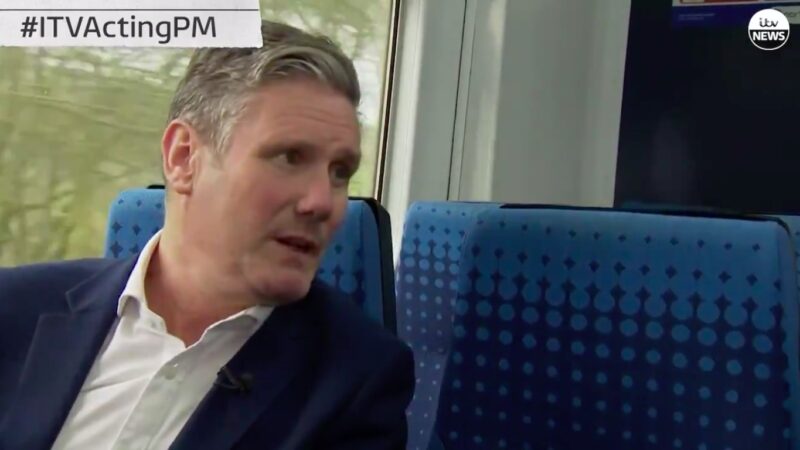
Keir Starmer has discussed his family, last month’s general election and his candidacy in the ongoing Labour leadership contest.
In an interview on Wednesday, the candidate talked about his past career and told ITV that becoming Prime Minister was “never in my plan”.
Asked about his vision for the party as a potential leader, he said: “I’m repeatedly saying that the shift we have made in the last five years is the right shift, that the 2017 is the foundation document but we need to build on that for 2024.”
The MP for Holborn and St Pancras also discussed how his mum was “very ill all of her life” with Still’s disease: “For the last ten years or so of her life, she couldn’t walk, she couldn’t really talk, eat or really move.”
When asked how the experience had shaped his politics, Starmer explained that it inspired him to be “very determined”.
Speaking about calls for the next leader to be a woman, he said: “I don’t think any of the candidates are standing because they’re a man or because they’re a woman. Each of us is making the case for what we genuinely think is right… and the members will then decide.”
Asked whether he can be a voice for northern people as a London MP, he stated: “I don’t really think that it’s where you’re from… The leader of the opposition has got to be able to speak for the whole of England, the whole of Wales, the whole of Scotland and Northern Ireland.”
On his role in forming Labour’s Brexit policy at the last election: “The policy was designed and rolled out by the shadow cabinet, by our conference as a whole… It wasn’t the only thing that came up on the doorstep by a long shot.”
He added: “It is a big mistake for our party to suggest that there is just one thing – that if it hadn’t been for that, this would have been a very, very successful election.”
He also talked about his role in the cabinet after the UK leaves the EU. He said he keeps “asking Steve Barclay what he’s doing after Friday” and added that the position he takes “largely depends where Steve Barclay goes”.
The Camden MP has received nominations from 62 constituency Labour parties, as well as from UNISON, Usdaw, SERA, LME and Community and has consequently secured a place on the final ballot.
Each Labour candidate needs either the backing of 5% of local parties – 33 – or the support of three affiliates, two of which must be trade unions, that amount to more than 5% of affiliate membership.
Fellow leadership candidates Lisa Nandy and Rebecca Long-Bailey have similarly achieved a place in the final vote through the affiliate route.
Emily Thornberry, also standing to be leader, needs a further 28 local parties to back her before February 14th if she wants to reach the final phase of the contest.




More from LabourList
Government abandons plans to delay 30 local elections in England
‘The cost of living crisis is still Britain’s defining political challenge’
‘Nurses are finally getting the recognition they deserve’